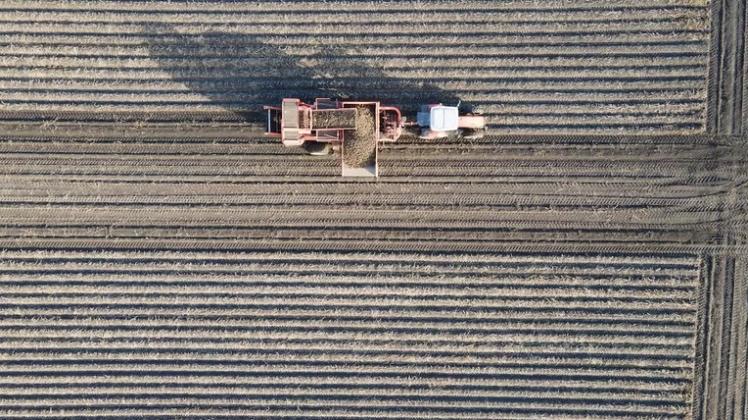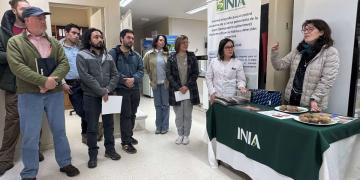Reino Unido: Frozen Potato Giant McCain Commits to ’Regenerative’ Agriculture
When the United Kingdom-based supermarket chain Morrisons announced it was aiming to shift all U.K. farm suppliers to net-zero, it made "regenerative agriculture" a central plank of that effort. It was, at the time, a somewhat remarkable sign

Now, in another sign of acceptance and amplification of a once-niche term, Canada-based frozen potato product giant McCain is promising to move 100% of its potato acreage (about 370,000 acres worldwide) to regenerative practices by 2030.
"The pandemic has put a spotlight squarely on the precarious nature of our global food system," said McCain CEO Max Koeune. "But the largest challenges we face are related to climate change. It’s estimated that a quarter of man-made carbon emissions come from the production of food, and if we have to grow more food to feed more people, that will only intensify. If we don’t transform the way we grow food, the whole system is at risk of suffering irreparable damage."
It’s a big enough commitment that is likely to have significant ripple effects—just like certain frozen potato products—across the agricultural industry. So it’s worth asking, then, what exactly is meant by “regenerative agriculture”?
According to Noble Research Institute, an independent non-profit focused on farming challenges, regenerative agriculture can broadly be defined as “the process of restoring degraded soils using practices based on ecological principles.” As such, they say, it’s focused more on outcomes—improvements to soil health and quality and health of the soil, water, plants, animals, and humans—than on prescriptive practices. In that sense, it’s different from "organic" which defines a specific set of rules governing what is and is not allowed on certified farms.
Proponents say this allows farmers to take the lead—and to problem solve based on the specific needs of their farm. According to The Counter deputy editor Joe Fassler, however, this strength may also turn out to be the concept’s weakness. Fassler argues in The Counter that the amount of attention that regenerative agriculture is now getting from investors, corporations, and policymakers alike means there is an inevitable reckoning on its way:
“But the growing, still-incipient movement harbors a secret below its hopeful surface: No one really agrees on what “regenerative agriculture” means, or what it should accomplish, let alone how those benefits should be quantified. Significant disagreements remain—not only about practices like cover crops, or the feasibility of widespread carbon capture, but about market power and racial equity and land ownership. Even as “regenerative” gets increasingly hyped as a transformative solution, the fundamentals are still being negotiated.”
From the use of farm chemicals to the challenges of equity and access, there are debates raging about almost all aspects of what is and is not regenerative. That’s also what a team led by Ken E. Giller of Wageningen University in the Netherlands found in a paper for Outlook on Agriculture, suggesting the challenge is not just a lack of clarity but, in some cases, directly opposite approaches being applied under one same banner:1
“Practices most often encouraged (such as no tillage, no pesticides or no external nutrient inputs) are unlikely to lead to the benefits claimed in all places. We argue that the resurgence of interest in Regenerative Agriculture represents a re-framing of what have been considered to be two contrasting approaches to agricultural futures, namely agroecology and sustainable intensification, under the same banner. This is more likely to confuse than to clarify the public debate.”
So moving back to the commitment from McCain, before anyone celebrates too loudly, it’s worth noting that we’re still talking about massive-scale monoculture of potatoes. As such, it will likely be necessary to dig (sorry!) into the details—but many of those details may be in the process of being worked out.
Here’s how they define the current state of progress in their report, starting with a Regenerative Agriculture Framework developed in conjunction with their farmers:
“This model was developed using data from 15 farmers in New Brunswick, beginning in April through to August 2020. The model was reviewed by OP2B scientific advisors for validation, and it evaluates a farmer’s profile based on soil health, bio-diversity, and regenerative practices, including carbon sequestration. This helps us to set a baseline, identify best practices, and develop technical pathways towards a more regenerative model. In recognition of the need to accelerate this work, we have set an ambitious new target of advancing regenerative agricultural practices across 100 per cent of McCain potato acres by 2030.”
As suggested in the statement above, the work is not yet done. Prior to the 2030 transition to regenerative, for example, the company plans to be operating three designated “Farms of the Future” to act as research and development labs for regenerative farming practices, with a specific focus on potato cultivation. Given the sheer scale of McCain’s operations, we should all hope that the results of these trial farms are significant improvements in the too-often detrimental impacts from past conventional practices.
Also worth noting is the pledge to pursue regenerative practices is just one part of a broader set of promises revealed as part of their 2020 Sustainability Summary Report. Other commitments include a 50% reduction in absolute operational emissions by 2030—and a switch to 100% renewable energy. And an admittedly less impressive 30% reduction in emissions intensity across its supply chain.
View Article Sources
Fuente: https://www.treehugger.com/mccain-switch-regenerative-potato-farms-5188388




